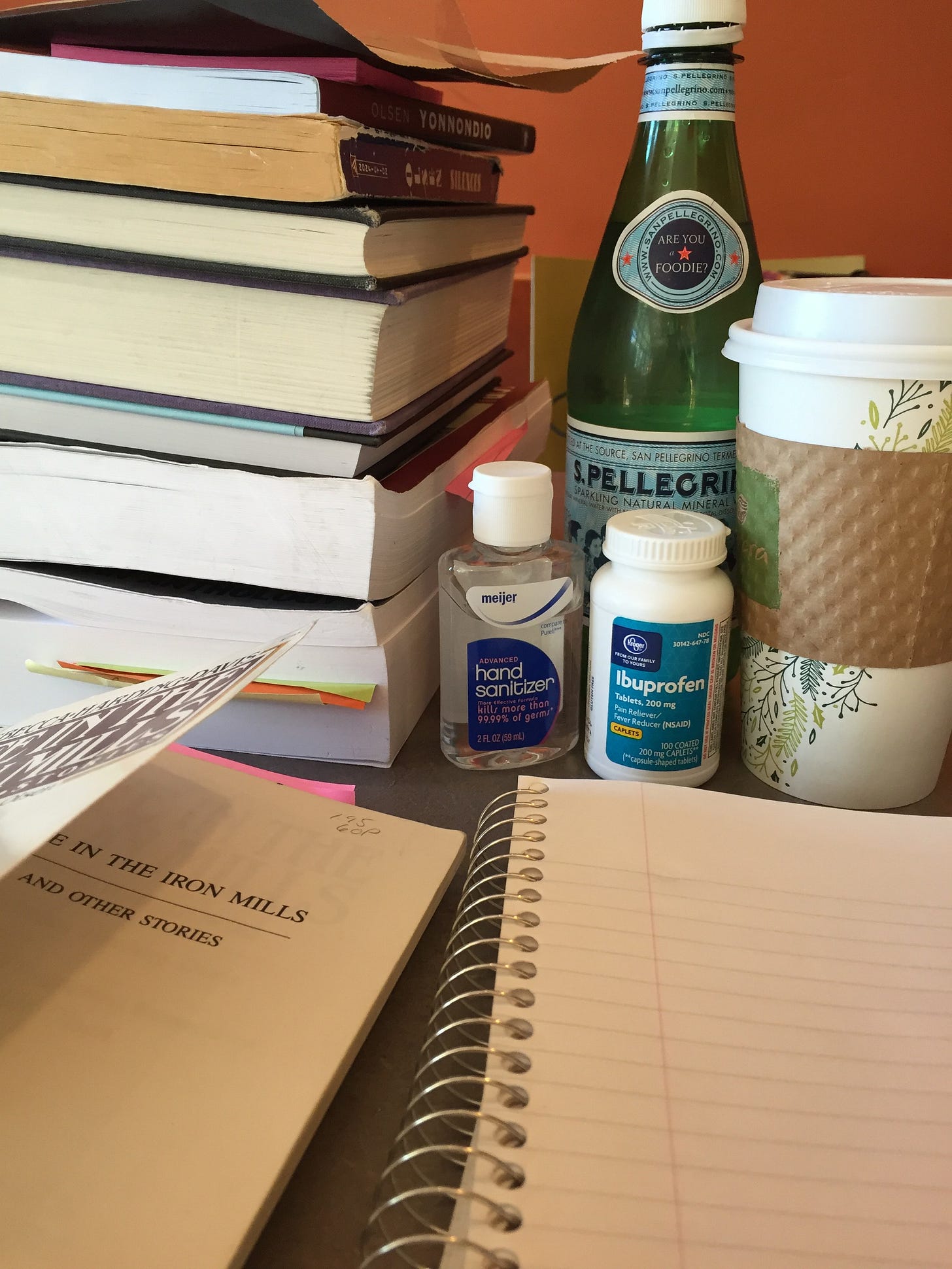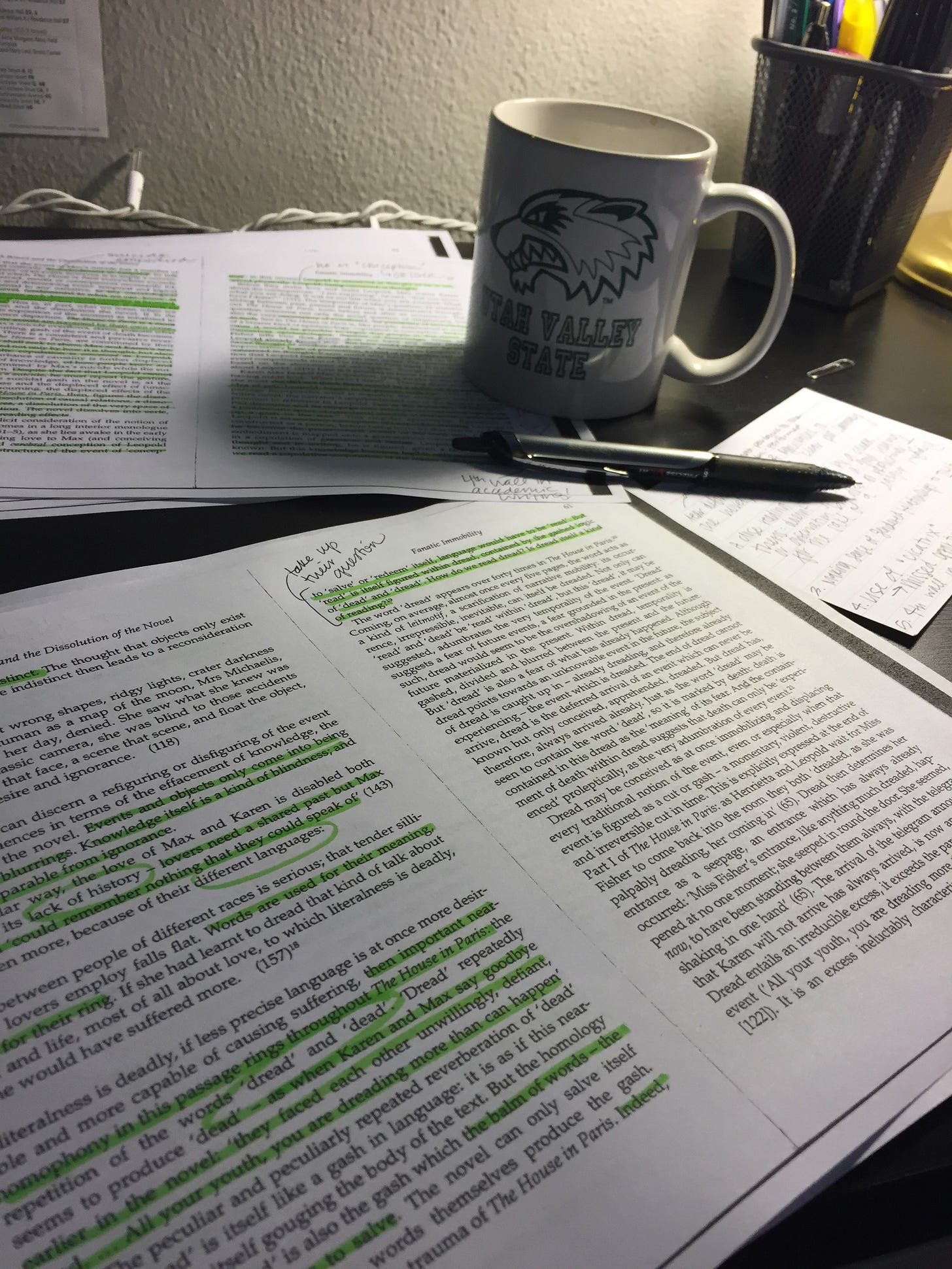what is literary analysis?
week 3 of the "become a close(r) reader" series: today, we're talking "theories" of reading and how to find the ones for you
Hi, close(r) reader,
Welcome to week three of our series on becoming a close(r) reader! If you’re just joining us, you can review previous posts in this series.
This week, we’re talking about an important concept in the world of English majors and literary analysis: theory.
About a year into my English undergraduate program, I took a course called “Introduction to Theory.” I had no idea what this meant; I only knew it was a required course for my program and one of several prerequisites before I’d be allowed into the advanced seminars on things like Detective Fiction and Post-Modernist Literature.
What I learned within the first days of the course was that “theory” is just a general name for learning and studying literature through different critical lenses. There is no singular “theory” for how to read correctly or properly or most accurately. Instead, there are many theoretical lenses—feminist, Marxist, deconstructionist, psychoanalytical, to name a few—that you can use to help you delve into the meanings within a text.
The basic idea of “theory” and an introductory theory course is to help you, as a reader interested in becoming a closer reader, understand a multitude of ways you can approach the analytical work of reading.
Today, I’m sharing a few theoretical lenses you may want to learn more about. In no way is this meant to be a comprehensive review of all possible analytical methods. This is, instead, meant to expand your knowledge of many different approaches and styles and methods of reading, so that you can go deeper down these pathways yourself.
(Think of this, then, as an invitation to learn a few new “theories” of reading, and to then embark on your own journey to learn more about the ones that interest you most!)
Today, you don’t have any timed writing requirements, but I do recommend that you take notes and use Google judiciously as you work through these ideas.
Let’s start with some definitions
As in prior weeks, I recommend having some note-taking materials at the ready for today’s exercise.
I also very much recommend Jonathan Culler’s tiny book, Literary Theory: A Very Short Introduction* if you want to dive more deeply into the different schools of thought I’m introducing today. It’s a fantastic primer.
What is “theory”?
According to philosopher Richard Rorty, the idea of “theory” emerged in the nineteenth century:
“Beginning in the days of Goethe and Macaulay and Carlyle and Emerson, a new kind of writing has developed which is neither the evaluation or the relative merits of literary productions, nor intellectual history, nor moral philosophy, nor social prophecy, but all of these mingled together in a new genre.”
This genre tends to fall under the generic term theory. As Jonathan Culler puts it, works of theory are “works that succeed in challenging and reorienting thinking in fields other than those to which they apparently belong.”
Keep reading with a 7-day free trial
Subscribe to Closely Reading to keep reading this post and get 7 days of free access to the full post archives.




